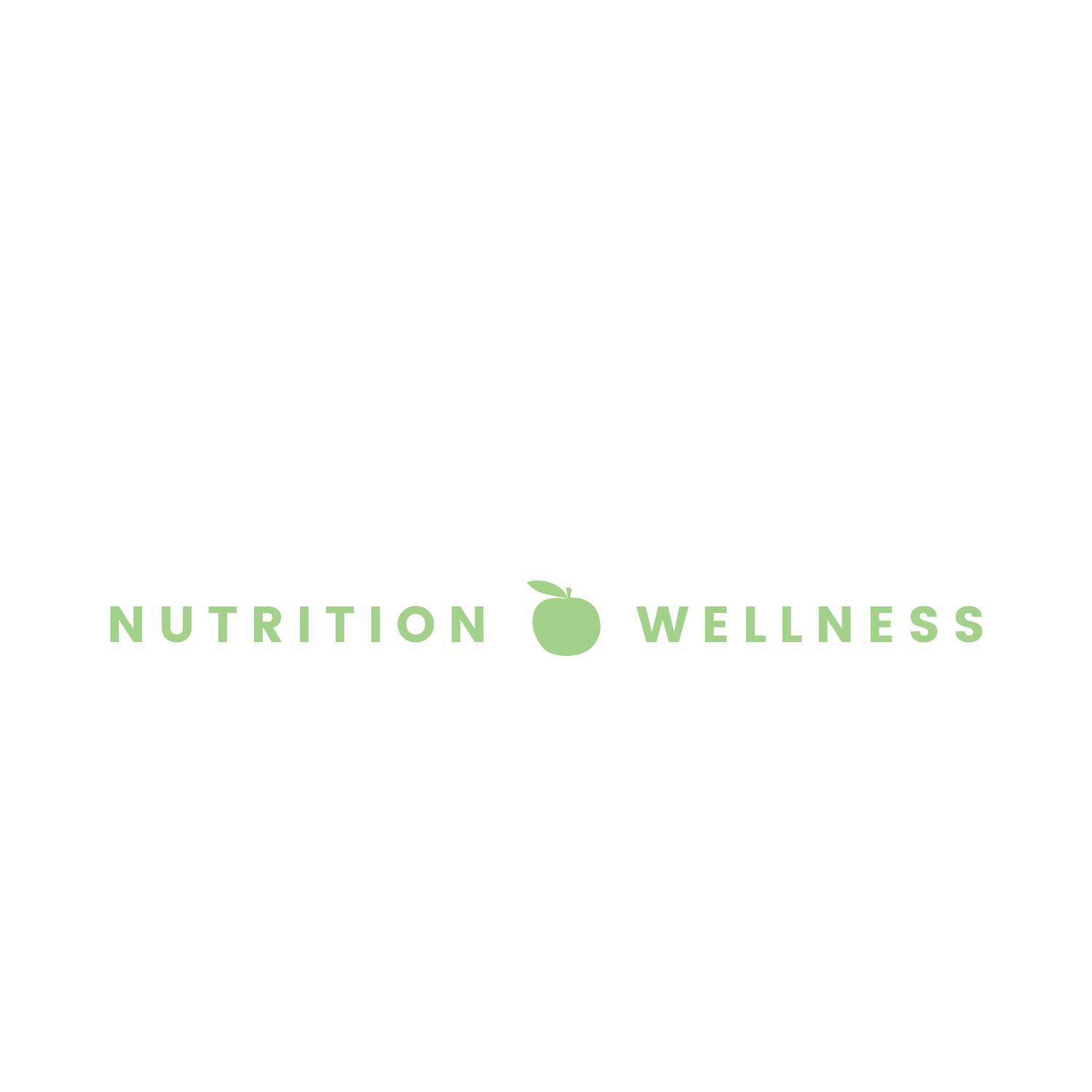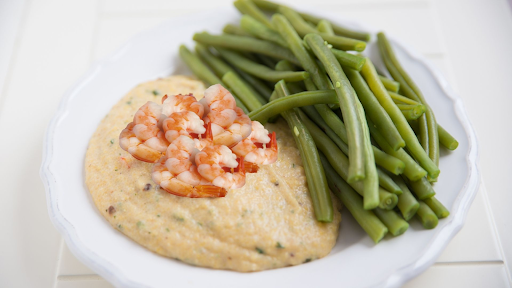3 Mediterranean Diet Recipes Tailored for GERD Sufferers: A Dietitian's Guide
Understanding GERD: Symptoms and Triggers
Gastroesophageal Reflux Disease, commonly known as GERD, arises from stomach acid, or occasionally bile, flowing back into the esophagus. This can irritate the esophageal lining, causing inflammation and discomfort. While occasional stomach acid reflux is common, consistent and severe episodes point to this chronic digestive issue.
Acid reflux happens when stomach contents, including acid, reverse into the esophagus, often resulting in a burning sensation known as heartburn. If left unchecked, this can escalate into more significant health concerns over time.
A primary contributor to acid reflux is a weak lower esophageal sphincter (LES) – a muscle ring that acts as a barrier between the lower esophagus and stomach. When this muscle doesn't function optimally, it allows stomach acid to rise into the lower esophagus, manifesting the symptoms of this condition.
Many recognize the burning sensation of heartburn, but the condition can present in various ways. Here are some typical signs:
Heartburn: A burning pain or discomfort that may move from your stomach to your abdomen or chest, or even up into your throat.
Regurgitation: A sour or bitter-tasting acid backing up into your throat or mouth.
Difficulty Swallowing: A sensation of food being stuck in your throat.
Dry Cough: Especially noticeable at night or when lying down.
Hoarseness or Sore Throat: Often more pronounced in the mornings.
Bloating: Feeling of fullness in the stomach.
Burping: Excessive and often accompanied by a sour taste.
Nausea after Eating: Feeling sick post meals.
It's important to understand that while specific foods might provoke acid reflux symptoms, reactions can differ among individuals. What aggravates one person might be completely fine for another. Being attuned to one's body and recognizing potential triggers is key to effectively managing and easing the discomfort associated with acid reflux.
Understanding Acid Reflux: Causes, Impact, and Its Chronic Form
Acid reflux is a common digestive issue where stomach acid, or occasionally bile, flows back into the esophagus, causing irritation. This uncomfortable sensation, known as acid reflux, often results from a weakened or improperly functioning lower esophageal sphincter (LES), the muscle ring separating the stomach from the lower esophagus itself.
Several factors can trigger acid reflux episodes. Common culprits include spicy or fatty foods, excessive caffeine, lying down soon after eating, and certain medications. Additionally, lifestyle habits, such as smoking and heavy alcohol consumption, can intensify acid reflux symptoms.
The repercussions of acid reflux on daily life can be substantial. Beyond the immediate discomfort, those who frequently experience acid reflux can face disruptions in sleep, changes in dietary choices, weight loss and even altered social interactions. If left unchecked, consistent acid reflux can escalate into more severe health concerns, including damage to the esophagus lining and respiratory issues.
While acid reflux describes the occasional backward flow of stomach acid, its chronic form involves this reflux occurring frequently, leading to consistent symptoms and potential complications. Recognizing the difference between the two is crucial for appropriate management and treatment.
By understanding the causes, impacts, and nuances of acid reflux, individuals can make informed decisions about their diet and lifestyle, aiming to alleviate its effects.
The Mediterranean Diet: A Brief Overview
The Mediterranean diet is more than just a dietary pattern—it's a reflection of the lifestyle and culinary traditions of countries bordering the Mediterranean Sea. Celebrated for its heart-healthy benefits, this diet emphasizes:
Whole Foods: Prioritizing fresh fruits, vegetables, whole grains, and legumes.
Healthy Fats: Embracing olive oil as a primary fat source, along with nuts and seeds.
Lean Proteins: Incorporating fish, poultry, and occasionally red meat, in moderation.
Dairy: Opting for low-fat or fat-free dairy products, with a focus on fermented options like yogurt.
Herbs and Spices: Using natural seasonings to flavor foods, reducing the need for salt.
Moderate Wine Consumption: Enjoying wine in moderation, typically with meals.
Physical Activity: Embracing an active lifestyle, whether it's walking, swimming, or other forms of exercise.
Beyond the food, the Mediterranean diet also emphasizes the importance of enjoying meals with family and friends, savoring each bite, and appreciating the joy of eating. This holistic approach to health encompasses both physical and emotional well-being. Notably, research from the Harvard T.H. Chan School of Public Health underscores the diet's effectiveness in reducing the risk of cardiovascular diseases and overall mortality.
The Mediterranean Diet and Gastroesophageal reflux disease (GERD): A Closer Look
The Mediterranean diet, often praised for its heart-healthy benefits, represents a prime example of a healthy diet that's more than just a collection of delicious recipes from sun-kissed regions. Rooted in the traditional culinary habits of countries bordering the Mediterranean Sea, this diet is a holistic approach to eating and living. Embracing such a diet not only tantalizes the taste buds but also brings numerous health benefits to the table, including enhanced heart health. The Mayo Clinic further elaborates on the myriad of benefits associated with this diet.
From bolstering cardiovascular health to fighting chronic inflammation and aiding in weight management, the Mediterranean diet is rich in benefits backed by research. Its focus on fresh ingredients not only supports heart health but also assists those with acid reflux in managing their symptoms. Let's delve deeper into its key components:
Whole Foods
The foundation of the Mediterranean diet is built on fresh fruits, vegetables, whole grains, and legumes. These core components, including whole grains legumes, are nutrient-rich and provide essential vitamins, minerals, and fiber, all of which promote optimal digestive health.
Healthy Fats
Olive oil, a Mediterranean cooking staple, is rich in monounsaturated fats and antioxidants. These fats, which are a healthier alternative to saturated fats, combined with the beneficial properties of nuts and seeds, can help reduce inflammation. This is especially beneficial for those experiencing reflux symptoms.
Lean Proteins
Fish, particularly the fatty fish, varieties like salmon and mackerel, are central to the Mediterranean diet. Rich in omega-3 fatty acids, these proteins can further combat inflammation. Poultry and occasional red meat are also included, but in moderation.
Dairy
Fermented dairy products like yogurt and certain cheeses are prevalent. They introduce beneficial bacteria to the gut, aiding digestion and potentially reducing symptoms associated with acid reflux.
Herbs and Spices
Instead of relying heavily on salt, the Mediterranean diet emphasizes herbs and spices. Many of these, like ginger and turmeric, have anti-inflammatory properties.
Moderate Wine Consumption
While wine is enjoyed in moderation, it's essential to recognize that alcohol can be a trigger for some. Always listen to your body and, if in doubt, consult with a healthcare professional.
Physical Activity and Lifestyle
Beyond the plate, the Mediterranean lifestyle values physical activity and stress-reducing practices, both of which can play a role in managing symptoms.
The synergy of these components doesn't just offer a flavorful dining experience but also presents potential relief for those grappling with GERD. The emphasis on anti-inflammatory foods, combined with lifestyle practices that promote digestive health, makes the Mediterranean diet a worthy consideration for Gastroesophageal reflux disease (GERD) management.
Debunking Mediterranean Diet and Gastroesophageal reflux disease (GERD) Myths
With the rising popularity of the Mediterranean diet and its potential benefits for GERD, several misconceptions have emerged. Let's address some common myths:
Myth #1: All Fats are Bad for GERD
While it's true that excessive fatty foods can exacerbate GERD, the healthy fats in the Mediterranean diet, like olive oil and nuts, can be beneficial against heart disease when consumed in moderation.
Myth #2: Spicy Foods Always Trigger GERD
Mediterranean cuisine does use spices, but not all spices trigger GERD. In fact, some, like turmeric, can have anti-inflammatory effects.
Myth #3: Wine is a Must
While red wine is a component of the Mediterranean diet, it's not mandatory. For those sensitive to alcohol, it's perfectly acceptable to skip it.
Myth #4: Tomatoes are Always GERD-Friendly
Though a staple in many Mediterranean dishes, tomatoes are acidic and can be a trigger for some GERD sufferers. It's essential to know your triggers and adjust accordingly.
Understanding the nuances of the Mediterranean diet and distinguishing between fact and fiction can empower GERD sufferers to make informed dietary choices. As we continue, we'll focus on specific ingredients within the Mediterranean diet—highlighting those that can be particularly beneficial for GERD sufferers and pointing out others that might require caution.
Key Ingredients to Embrace and Avoid
The Mediterranean diet is a treasure trove of flavors and ingredients, many of which can be beneficial for those with GERD. However, like any diet, there are certain foods that might not sit well with everyone. Let's highlight the beneficial ingredients and point out potential triggers:
Beneficial Ingredients for Gastroesophageal reflux disease (GERD) Sufferers:
Olive Oil
Leafy Greens
Oats
Ginger
Lean Proteins
Potential Trigger Foods to Be Cautious With:
Tomatoes
Citrus fruits (e.g., oranges, lemons)
Onions and garlic
Spicy peppers
Fatty cuts of red meat
Carbonated beverages
Excessive caffeine (found in coffee and some teas)
Peppermint
Chocolate
Highly processed foods
It's essential to remember that everyone's body is different. While these lists provide a general guideline, it's crucial to pay attention to your body's signals and adjust your diet accordingly.
With these guidelines in mind, let's move on to the exciting part: delicious Mediterranean recipes tailored for GERD sufferers. These dishes will not only tantalize your taste buds but also ensure you're nourishing your body in a way that respects its unique needs.
Recipe Section: 5 Mediterranean Diet Recipes Tailored for GERD Sufferers
Recipe #1: Not Dry Turkey Burgers!
Keep your turkey burgers moist while packing them with nutrients & flavor!
Ingredients:
1 lb ground turkey meat
1/2 red onion, diced
1/2 red bell pepper, diced
A couple tablespoons each of finely chopped (fresh!) dill (could also use basil and/or thyme)
A couple tablespoons of finely chopped parsley
1 tsp chili powder
A couple pinches of salt
Instructions:
Spray grill with avocado oil or cooking spray. Preheat the grill to medium-high heat. While the grill is heating, combine all ingredients in a bowl until very cohesive. Form into about 5-6 patties. Cook on grill for about 5 minutes, flip when burger can be easily removed from grill grates. Cook on the other side for about the same time. Serve on whole grain bread with fresh tomato, lettuce, a little mayo and mustard. YUM!
Dietitian's Note:
The "Not Dry Turkey Burgers" recipe uses turkey, a lean protein that's easier on the stomach than fattier meats. Fresh herbs and veggies like dill, parsley, and red bell peppers enhance flavor and nutrition without causing irritation. A touch of chili powder adds zest without excessive spice, and serving on whole grain bread introduces beneficial fiber. This dish is both tasty and GERD-friendly.
Recipe #2: Last Taste of Summer Smoothie
The "Last Taste of Summer Smoothie" blends peaches and blueberries, offering a mix of antioxidants. Peaches provide immune-boosting carotenoids, while blueberries, rich in anthocyanins, support both heart health and brain health and cognitive function.
Servings: 1-2; Prep Time: 5 minutes
Ingredients:
1 peach, sliced
1/2 cup frozen blueberries
1/3 cup Greek yogurt
1 scoop whey protein isolate powder, vanilla flavored
1 handful of “power greens” (can use spinach)
1/3 cup ice
1/2 cup water
Instructions:
Blend till smooth. Add more ice to desired texture. Top with granola for added satisfaction & longer lasting fullness!
Dietitian's Note:
The "Last Taste of Summer Smoothie" is a refreshing blend that combines the flavors of peaches and blueberries, both rich in antioxidants and beneficial nutrients. Peaches provide immune-boosting carotenoids, while blueberries offer heart-healthy anthocyanins. The Greek yogurt adds creaminess and aids digestion with its probiotics. Importantly, this smoothie is crafted to avoid common GERD triggers, making it both delicious and GERD-friendly.
Recipe #3: Low FODMAP Herb-y Garlic-y Shrimp, Green Beans, and Polenta
Low FODMAP does not mean low flavor or lack of nutrition. This meal is perfectly balanced and bursting with flavor from herbs & garlic oil (garlic oil is low FODMAP!!!). Not to mention, this dish is perfectly balanced with protein, carbohydrates, fiber, and a healthy fat too. Give it a try. Even if you do not have gut issues, this is an awesome rotation for your week day meals.
Servings: 4; Prep Time: 1 hour
Ingredients:
1 lb fresh green beans, trimmed
1 cup of polenta
1 10 oz bag of frozen sweet corn
3 cups of chicken broth
1/4 cup grated parmesan
1 lb frozen shrimp (peeled & deveined; thawed using directions on package)
1 tbsp olive oil
1 tsp oregano
1 tsp paprika
2 tbsp diced green onion (just the green parts)
1/2 tsp salt
1/2 tsp freshly ground black pepper
1/4 cup fresh basil, finely chopped
1-2 tsp garlic oil
Instructions:
In a large frying pan over medium heat, add olive oil and shrimp seasoned with 1/4 tsp salt, pepper, and paprika. Cook until pink on one side (2-3 minutes), flip, then add green onion and oregano. Cook for another 3 minutes and set aside, covered.
Boil water in a large pot with 1/2 tsp salt. Add green beans, cook for 2-3 minutes, strain, and set aside.
In the same pot, boil chicken broth. Gradually add polenta, whisking continuously. Stir in frozen corn and cook until liquid is absorbed (about 5 minutes). Remove from heat and mix in parmesan cheese.
Serve with a base of polenta, topped with green beans and 3 oz. of shrimp. Finish with a drizzle of garlic oil, fresh basil, and optional extra cheese.
Dietitian's Note:
The "Low FODMAP Herb-y Garlic-y Shrimp, Green Beans, and Polenta" recipe is a delightful dish that aligns well with GERD-friendly dietary considerations. The use of shrimp provides a lean protein source, which is easier on the stomach and less likely to trigger reflux.
The green beans and polenta offer a balanced combination of fiber and carbohydrates, promoting satiety without causing discomfort. Notably, the recipe incorporates garlic oil, which gives the flavor of garlic without the FODMAPs, making it a safer alternative for those with severe GERD too. The dish's emphasis on fresh herbs and seasonings ensures a burst of flavor without relying on potential irritants.
Overall, this recipe is a testament to the fact that one can enjoy a flavorful and nutritious meal while being mindful of GERD considerations.
Tips for Incorporating the Mediterranean Diet into Daily Life
Adopting the Mediterranean diet, especially with GERD considerations, can be a smooth transition. Alongside dietary changes, certain lifestyle modifications have been shown to help prevent symptoms related to gastroesophageal reflux disease (GERD). With a bit of planning and some practical strategies, you can seamlessly integrate this heart-healthy and GERD-friendly diet into your daily routine. Here are some tips to get you started:
Start Small
Begin by incorporating a few Mediterranean ingredients into your meals. For example, replace butter with olive oil or snack on a handful of nuts. These simple swaps not only cater to GERD considerations but also contribute to reducing heart disease risks.
Plan Ahead
Dedicate a day of the week for meal planning. List down GERD-friendly Mediterranean recipes you'd like to try and create a shopping list. This not only saves time but also ensures you have all the right ingredients on hand.
Batch Cooking
Prepare meals in batches. This approach reduces the daily cooking effort and ensures you have GERD-friendly meals ready to go. Consider dishes like Mediterranean salads or grilled fish that can be stored and eaten over a couple of days.
Mindful Eating
The Mediterranean ethos values unhurried meal enjoyment. Relish each bite, chew thoroughly, and avoid overeating. This not only aids digestion but also helps in preventing GERD episodes and heart disease in the long run.
Stay Hydrated
Drink plenty of water throughout the day. While the Mediterranean diet is rich in hydrating foods like fruits and vegetables, ensuring adequate water intake can further support digestion.
Educate Yourself
Familiarize yourself with potential GERD triggers within the Mediterranean diet. While the diet is largely beneficial, knowing which foods to be cautious with can make a significant difference.
Stay Active
Physical activity is a cornerstone of the Mediterranean lifestyle. Regular exercise can aid digestion and reduce the symptoms of GERD. Find activities you enjoy, whether it's walking, yoga, or swimming.
Remember, the key is consistency. While it might take some time to fully adapt to the Mediterranean diet, the potential benefits for GERD relief and overall health make the journey worthwhile.
Conclusion
The Mediterranean diet, with its rich tapestry of flavors and nutrient-dense ingredients, offers more than just culinary delight. For GERD sufferers, it presents a promising avenue to manage and alleviate symptoms. By emphasizing whole foods, healthy fats, lean proteins, and a lifestyle of mindfulness and activity, this diet can be a beacon of relief for many grappling with the discomforts of GERD.
Yet, as with any dietary approach, individual experiences may vary. It's essential to remember that our bodies are unique, and what works wonders for one might not be as effective for another. Therefore, I encourage you to try out the Mediterranean recipes tailored for GERD, listen to your body's signals, and find the perfect balance that suits your needs.
If you're seeking personalized guidance on your dietary journey, especially in managing GERD with the Mediterranean diet, I'm here to help. Book a complimentary call with me, and together, we can tailor a plan that aligns with your unique needs and lifestyle.
In the journey of health and well-being, experimentation and patience are key. Embrace the Mediterranean way, discover new flavors, and find the path to a happier, healthier you.










